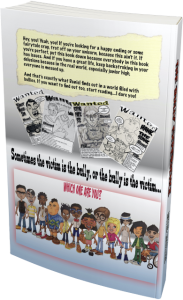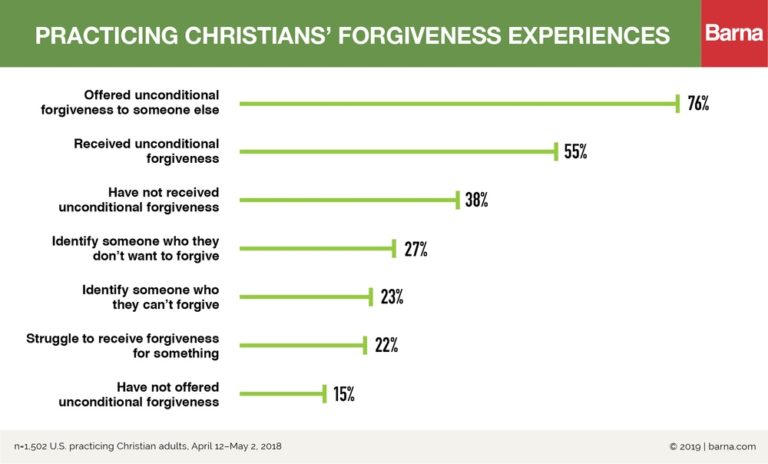What Are The Steps To Forgiveness? (5 Crucial Steps)


By Antoine G Larosiliere
As I sit here trying to understand what’s going on in the world, I realize that most people don’t know, what are the steps to forgiveness?
I spent 30 years of my life being angry at my mother for the verbal abuse I suffered at her hands. That verbal abuse made a young child insecure, lack self-love and a bearer of false confidence. My anger didn’t go away until I figured out what are the steps to forgiveness? If you’ve spent years of your life being angry and you’re sick of it— keep reading. If this anger has poisoned your past and present relationships— I will share with you what has turned my anger into joy. What are the steps to forgiveness? I had to go through 5 definitive steps. You have to…
- Acknowledge the pain.
- Understand where the pain comes from.
- Understand why the person hurt you.
- Accept the difficult truth.
- Embrace the opportunity you’ve been given.
“I spent my whole life committed to growth, but truly forgiving has eluded me for many years and I live in anger for decades.”
What are the steps to forgiveness?
I’m not a doctor, a therapist or a life coach; but I am a father, a husband, a brother, a son and an educator. I spent my whole life committed to growth, but truly forgiving has eluded me for many years and I live in anger for decades. In the past when I’ve researched it, most articles will give you general steps that were not clear on how to apply it. Other articles will give you specific steps but will not include the most crucial step or course of action. I had to discover these crucial steps through trial and error and through pursuing as much growth as possible and often failing. I realize I failed at truly forgiving because I was still angry. Once you’ve truly forgiven someone that anger turns into joy. In one research, “76% of practicing christians believe they have offered unconditional, joyful forgiveness to another person who had hurt them. While 55% remembers another person being merciful and forgiving them, and another 38% percent say forgiveness has not happened.” This disparity makes it obvious that some of these christians don’t know what are the steps to forgiveness.
#1 Acknowledge the pain
The very first thing I had to do was acknowledge the feelings exist. This is a very important first step because many people refuse to acknowledge the pain, as if it’s to say acknowledging the pain is a way of acknowledging weakness. My people try to disguise their pain with success, material items and toxic relationships. They say to themselves, “I’m fine! Look at how successful I am.” or “I have a nice car, a nice house, a spouse; I’m doing great.” You can have all these things and still be angry, and that anger will poison your blessings. With that being said, acknowledge the pain you’re suppressing.
- Take a day off from work
- Watch a sad movie alone about betrayal.
- Pay attention to the emotions you feel when during the betrayal scenes.
- Allow yourself to cry and be emotional.
- Write down those emotions on a piece of paper, so you can’t deny their existence anymore.
- Share your feelings with a trusted individual
#2 Understand where the pain comes from
Sometimes the placement of where the pain comes from is inaccurate. People often will associate the pain with a recent betrayal, not realizing it’s really from an earlier betrayal that happened during childhood. Not to diminish their recent betrayals, but it’s compounding damage, not the true source of the anger. Is this early betrayal in the form of heartbreak, neglect or abuse? Identifying the type of hurt will also give you a better understanding of your past or present actions.
- Identify who hurt you. This is usually not the real source, but the person who we presently blame and lash out against.
- Identify who was the first to hurt you: this is usually the real source, and it’s usually from childhood.
- Identify the type of hurt: heartbreak, neglect or abuse?
- Write down why you are angry at the person who hurt you on a piece of paper.
- Share what happened to a trusted person: you need to hear yourself utter the words. It becomes more real.
#3 Understand why this person hurt you.
This is one of the most important steps. Many people are usually stuck in this part of the process because they don’t really know why the other person has hurt them. This is usually the reason why many people seek closure. This part is going to require some research, some investigative work. I do not recommend you ask the person who hurt you why they hurt you because oftentimes that answer won’t be the truth. Instead research what happened to them as a child or as an adult to have a better understanding of their pain and the circumstances that led them to hurting you. Usually what you’ll find is that these individuals have been hurt by others.
- Investigate the past of the person who hurt you.
- Try to speak with the person that hurt you, but they might not tell you the truth.
- Don’t seek closure from the person that hurt you. The power of closure should come from you.
- Speak with their friends and relatives instead to discover who hurt them.
- Look at the correlation of what has happened to them to what they’ve done to you.
#4 Accept the truth
Acceptance is the act of believing and embracing the facts and information offered to you. This isn’t as easy as it sounds. Often the truth is uncomfortable and doesnt fit in how we perceive our lives. It’s easy to make bad choices and foolish thoughts when you don’t know any better. People use ignorance and other excuses to bail them out of being accountable. When you’re faced with the truth, your choices are clear, and excuses are unacceptable. To accept the truth, you must…
- Believe the validity of the connections you made. How their hurt led to how and why they betrayed you.
- Be accountable for your role in the truth. In other words, accept that you’ve placed expectations on people who come from being hurt not to hurt you. Realize it foolish to ask people for things, they don’t know how to give or they’ve never been given.
#5 Be grateful for the opportunity
There is opportunity in every problem and a blessing in every failure. Your responsibility is to find the opportunity, see the blessings you’ve been given. The deeper the hurt, the greater the blessing. Try to initially see this with your past accomplishments. Look at what you’ve accomplished that was set by failure and dissapointment. When you see the blessing in the betrayal you suffered, your anger begins to dissipate. That’s when I realized that my abusive childhood prepared me for great accomplishments; and how can I be mad at that. So to be grateful for the opportunity; do the following…
Look at your past accomplishments and connect them to your past failures or disappointments.
- Discover the opportunity that this harm has offered you.
- Accept the challenge the opportunity has presented.
- Be thankful for the opportunity this person has given you.
- Say out loud: “I forgive you and thank you for everything! I hope this has been helpful. It’s human instinct to hold a grudge or want revenge on the people who wronged you. What we don’t realize is how this grudge or anger has poisoned our relationships and our thoughts. Holding onto this hurt doesn’t allow you to love wholeheartedly and without love, you never truly live.
The Bully Experience "Daniel's Story"

Sign up for our newsletter and Read the novel For Free!
Stay updated. Sign up for our newsletter, and get the first two chapters of The Bully Experience Daniel’s Story absolutely free.
